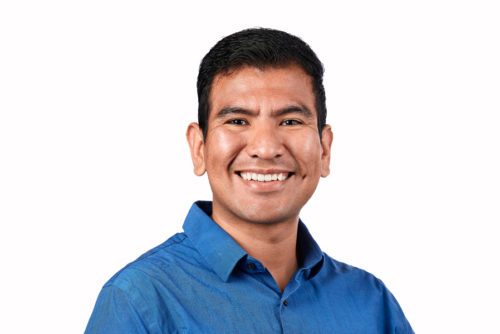PHX Perspectives | February 15th, 2019
I grew up in a small city in South Texas named McAllen. Very few people in Boston have heard about McAllen—however, those who have heard about it probably did from Atul Gawande’s article The Cost Conundrum in which he explains how our healthcare market is one of the most expensive, with some of the worst outcomes. Otherwise, they probably heard that McAllen was ranked as the second “fattest city in America” according to Forbes. Given the information I just shared, it makes sense I was drawn to a career in public health. “The city of palms,” as McAllen is called, is just one example of a place that is ripe for public health work. Yet, I only discovered public health as an academic discipline and as a possible career path 3-4 years ago, while I was enrolled on a different master’s program. This prompted a 180-degree turn in my professional path. While I am happy with the decision I made, I wish I had known Public Health was “a thing” when I was younger!
I believe we need to introduce public health foundations at a younger age. Recently, Boston University School of Public Health (BUSPH) hosted a Dean’s Symposium on Teaching Public Health. One of the challenges identified during the symposiums was that students don’t learn about public health early enough—there are very few programs targeting younger audiences. By the time students are exposed to public health—often times not until they are undergraduates in college—they have already decided to pursue other careers. As a consequence, we miss out on a population of enthusiastic learners who can go on to become emerging leaders in the field.
Many people are unclear about what public health means and what it does. Public health professionals focus on preventing disease and injury by promoting healthy lifestyles. They implement educational programs, develop policies, administer services, conduct research, and regulate health systems to achieve these goals (“Discover,” 2019).
Public Health professionals have a variety of backgrounds in areas like biology, business management, environmental health, sociology, government, medicine, statistics, communication, and many other disciplines. Exposing younger audiences to public health will allow some of them to explore different career choices in an ever-growing field. Public health graduates work in a variety of exciting roles all over the world such as epidemiologist studying the spread of disease in Sub-Saharan Africa, health policy advisors advocating for equal access to healthcare at the local and state levels, and biostatisticians analyzing data to draw conclusions about the effectiveness of a health intervention. Engaging this audience is especially important if we want the world to know what public health work is all about, and why it’s so important.
Public health has to constantly evolve to respond to the needs of the communities we serve, but now public health teaching needs to keep up with this evolution. To this end, PHX introduced the PopHealthExperience: a summer enrichment program for rising 7th-10th graders. Through this program, we are broadening our audience of lifelong learners to include youth. Students will learn from BUSPH faculty and graduate students about a range of public health topics, participate in hands-on activities, discover career choices, and develop leadership skills. Parents can work comfortably knowing that their children are learning new topics, developing new skills, and making new friends. Your child can grow up to become a future public health leader.
References
Discover: What is Public Health? (2019, February). Retrieved from https://www.aspph.org/discover/
The PHX Perspectives blog is a platform that creates an opportunity to share public health stories and viewpoints. Anyone interested in submitting a piece, which should be 600-800 words long, should contact phx@bu.edu. Population Health Exchange reserves the right to reject or edit submissions. The views expressed are solely those of the author and are not intended to represent the views of Population Health Exchange or Boston University School of Public Health.

